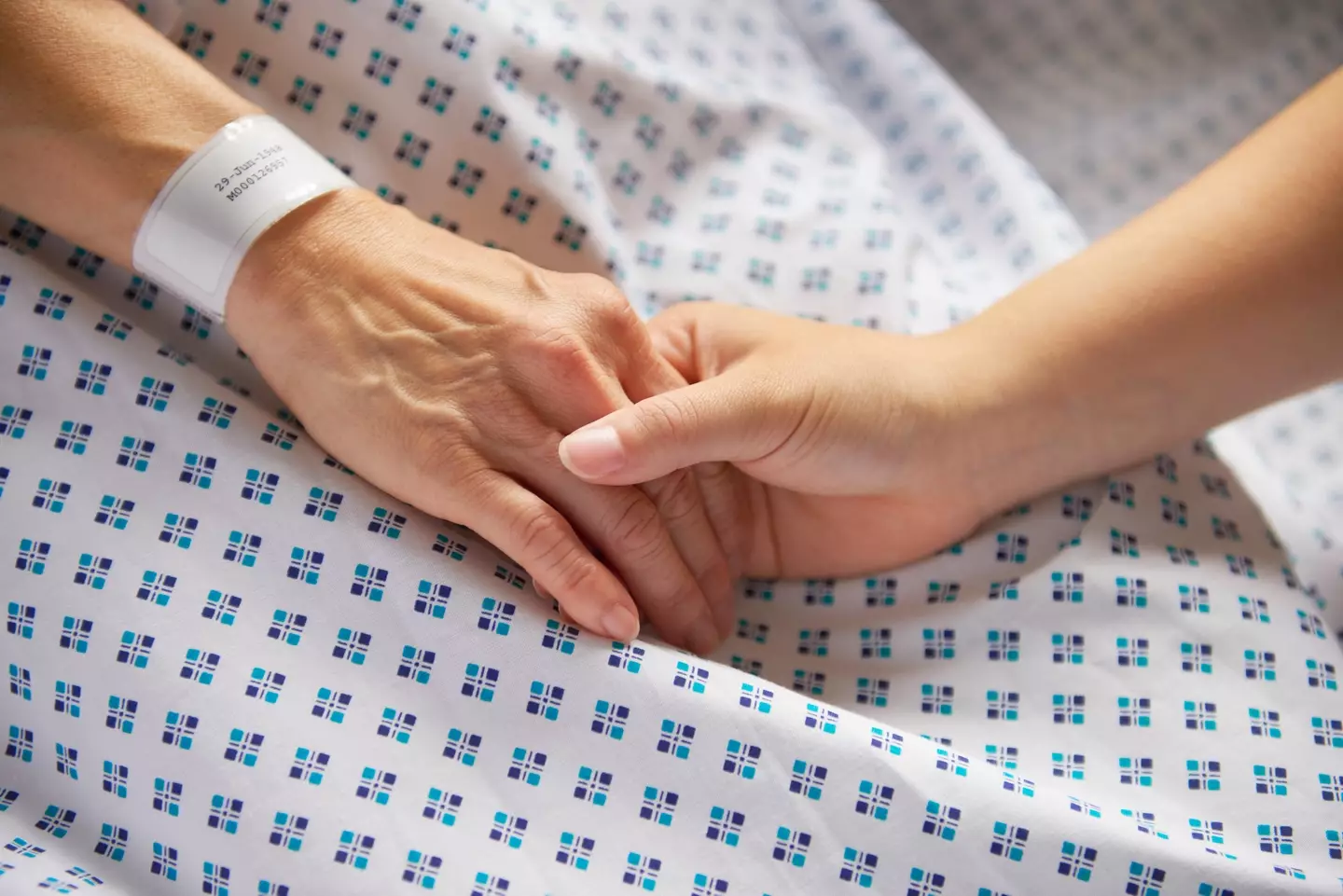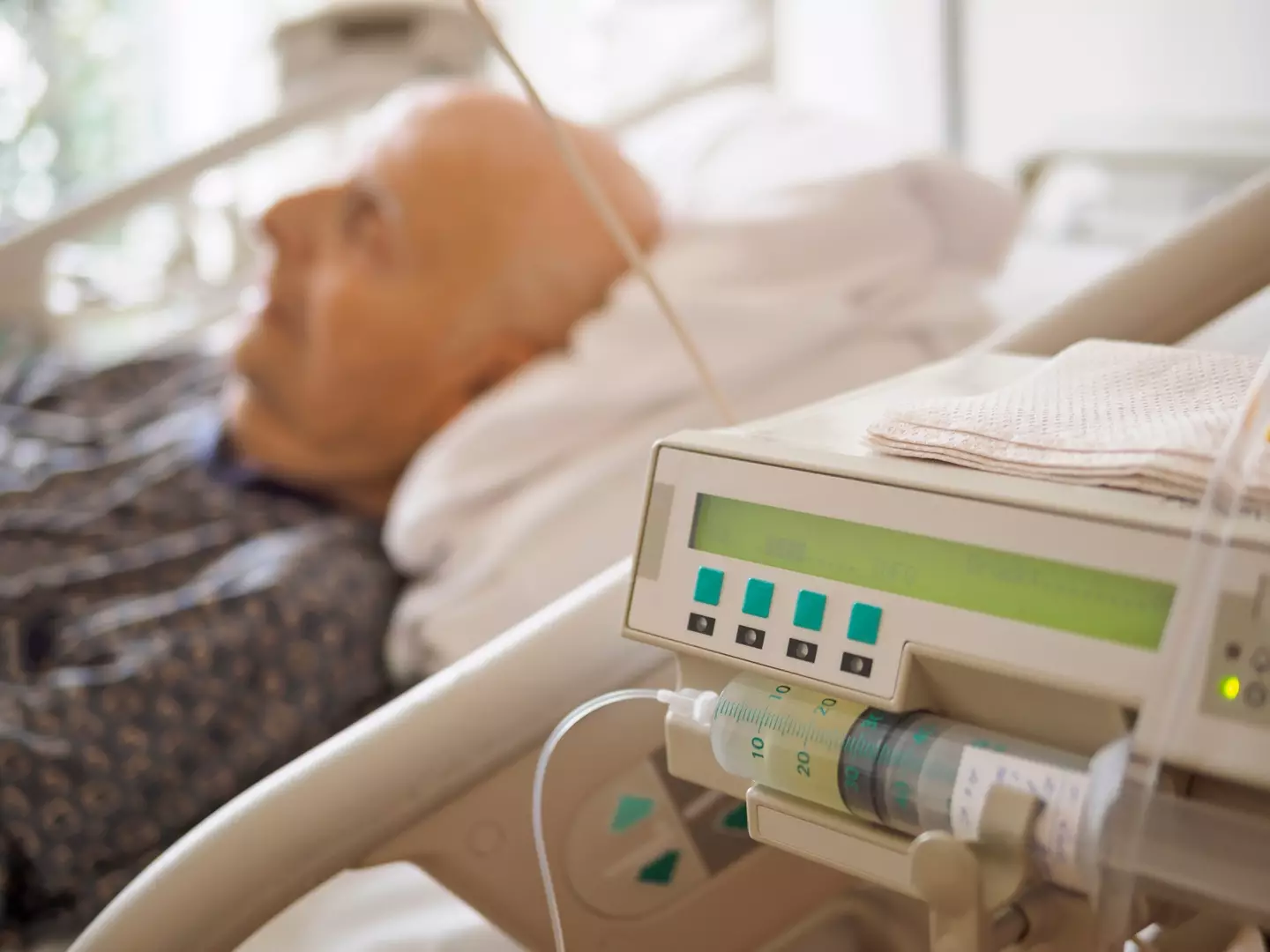
The human body is remarkable, even when it’s close to death.
Death is something that terrifies most, however, there are natural occurrences that happen to the brain and body which might actually make you feel more at ease before you pass.
For example, Julie McFadden, a palliative and intensive care nurse in Los Angeles, has spoken about witnessing many of her ICU patients being ‘visited’ by family members who have already died.

Advert
Kind of like your personal guardian angel who’s there to comfort you before you join them in the afterlife.
Known as ‘visioning’, a lot of people in her comment section under her TikTok explained their experience with family members going through this and how it brought them comfort during the end.
She also went on to talk about the ‘death stare’ phenomena, where a patient will stare off into the distance and can’t be snapped out of it.
Apparently, this is them seeing things such as angels, old friends from the past or being in a state of contentment.
But now, Julie has explained something that is a little unexpected for a symptom of impending death.
"They act like their old selves"
Now, if you know Grey’s Anatomy, you’ll probably remember this phenomenon with Mark Sloan (aka McSteamy).
Dubbed ‘the rally’, Julie explained to her followers: "Here's one phenomenon that happens during the death and dying process that medical professionals, like myself, cannot explain.
"This is when someone is really sick and almost towards actively dying, meaning dying within a few days, and then suddenly they look like they are 'better'.
"This can manifest in different ways but a lot of times they suddenly will eat, they'll suddenly talk, maybe even walk, they act like their old selves.
“They have a little more of a personality, kind of laughing, talking joking but then usually they die within a few days after this, sometimes even that night and it happens to probably a third of our hospice patients, so it happens quite a bit.
“We try to educate the family about this before it happens so it doesn't devastate them when they suddenly pass after doing so well for a few days."

Also known as terminal lucidity, there are several signs that someone you love is experiencing their end-of-life surge.
What are the symptoms of terminal lucidity?
Willed, a will writing and funeral planning service, shared the signs most commonly associated with the rally:
· Suddenly seem lucid, and physically stronger
· Wish to prepare a will or other important end-of-life documents
· Give away belongings
· Want to resolve conflicts
· Ask to speak to a religious leader
· Look around for misplaced belongings
· Request to assist with their own funeral plans
Her followers also agreed with some of the above symptoms and commented what they had witnessed during 'the rally'.

One shared: “I was so grateful for my moms rally. I got a wonderful, fairly lucid morning with my mom. We talked, laughed, loved. Three days later she died.”
Another said: "As a hospice nurse, I tell the family that I believe it is nature's way of giving them time to say goodbye/enjoy/or complete unfinished business."
Someone else wrote: "Yes! My husband got on the lawn mower and mowed 'I love you' into the lawn for me and he passed three days later."
What causes terminal lucidity?
The short answer is that more research is needed to fully understand the phenomenon, which in some ways contradicts what we think we know about the human body.

Some experts suggest that the brain's cognitive functions and memories work a little differently during terminal lucidity than they would normally do.
Scientists have theorised that fluctuations in brain functions cause the brief period of lucidity before death, according to Healthline.
